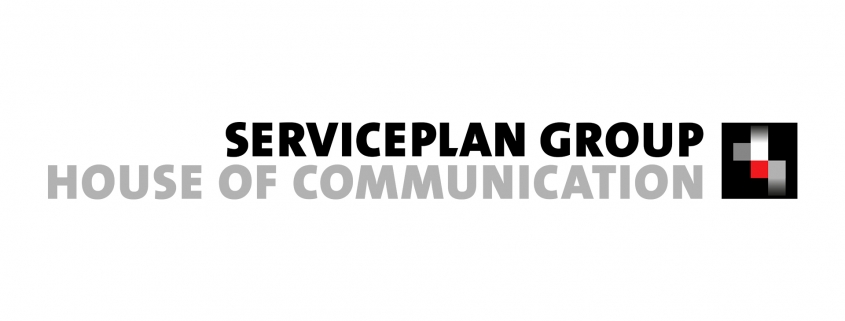- The most relevant SEO News for February 2020 - 26. February 2020
- The most relevant SEO News for January 2020 - 21. January 2020
- The most relevant SEO News for December 2019 - 23. December 2019
- The most relevant SEO News for November 2019 - 25. November 2019
- Don’t be afraid of Google’s BERT - 31. October 2019
- The most relevant SEO News for October 2019 - 31. October 2019
- The most relevant SEO News for September 2019 - 25. September 2019
It’s all about speed when it comes to online marketing. Therefore, in November, we are already looking at the new year and thinking about everything that will change in 2018. Will SEO be dead and gone and robots take over the world? It won’t be that bad, but there is a hint of truth behind this. You can find out more in the current SEO news.
1) Google launches its Mobile-First-Index (a little)
The launch of the Mobile-First-Index will be the dominating topic for SEOs in 2018. A year ago, the search engine, based in Mountain View, had already announced that it will realise mobile versions of websites in the future instead of using the desktop version as a reference for contents and rankings. However, it is not all going to happen on one specific day, the change will be quite gradual and accompanied by extensive tests, according to Google. Google spokesperson, John Mueller, has now announced that work has begun on converting the first websites to the Mobile Index in trial operation. Although it is still too early to talk about the official launch of regular operation, it is more of an initial testing phase. However, the changes in rankings that were observed by web masters in the middle of October are not related to these tests, according to Mueller.
2) 2018 SEO expert oracle
A glimpse into the SEO crystal ball fascinates the search industry again every year. Renowned experts have made predictions for 2018, on what the dominating trends will be in the coming 12 months. They all agree that Google’s transition to the Mobile-First-Index, the rapidly increasing use of language assistants and the triumph of artificial intelligence will bring about serious changes to the technological side of search marketing. Companies and web masters should watch these changes closely. The fight for organic traffic will quickly intensify. Since Google increasingly appears as a publisher and already provides a lot of information on its own search results using the so-called Featured Snippets, the use of structured data, in-depth analysis of contents and user behaviour as well as the focus on a good user experience all remain the most important areas of activity. Aaron Wall from SEO Book even speculated that Google’s dominance in the search sector will decline and that users will increasingly resort to specialised search systems. In summary, SEO expert John Lincoln easily adapts an old classic: “The old SEO is dead and gone – welcome to a new era. It’s 100 times better and much more exciting.”
3) Microsoft and Google rely on human support
Barely a day goes by when there isn’t something written about the unstoppable spread of artificial intelligence and its effects on online marketing. Search provider giants, Google and Microsoft, rely on the use of learning machines. However, if you look closely, there is also an opposite trend: Microsoft’s search engine, Bing, first announced in August that it wants to rely more on its collaboration with users in the “Bing Distill” community in order to improve the quality of its direct answers in the future (we reported). At the start of October, Google invited its “Local Guide” community to the second conference in San Francisco. According to the company, the organised user community already has around fifty million participants worldwide, who primarily check and correct entries in Google Maps. In addition, almost 700,000 new entries are composed by local guides on a daily basis. Google said that this is a great help, especially in developing countries, because information from local businesses and services in these countries is difficult to automatically record and check. It remains to be seen whether this trend is taking hold or whether humans are just a bridge technology until artificial intelligence has acquired the same skill set.
4) How artificial intelligence will change search engine optimisation
Search Marketing faces great changes and, at the core, it’s all about the effects of integrating artificial intelligence and machine learning into the technology of major platforms. In terms of the organic search, according to SEO veteran and expert, Kristopher Jones, this means that keyword rankings will no longer be subject to dramatic changes in the future and that there will be no superior, universal algorithm. In fact, specialised and dynamic algorithms in a variety of versions will be used for various search requests. Ultimately, the search provider’s aim is to accurately grasp the exact intention of the user using technological aids and to be able to deliver better results, according to Jones. The search expert believes that the classic keyword analysis and technical SEO would therefore be obsolete. In response to the challenges of artificial intelligence, Jones suggests a combination of user experience optimisation, strictly tailoring the contents to user intentions and using more natural speech patterns for voice search. He went on to say that search engine optimisers will not be able to develop their own analysis tools based on artificial intelligence and that agencies and advertisers will have to develop strong responses to the technological challenges in order to not be overwhelmed by the progress.
This page is available in DE






